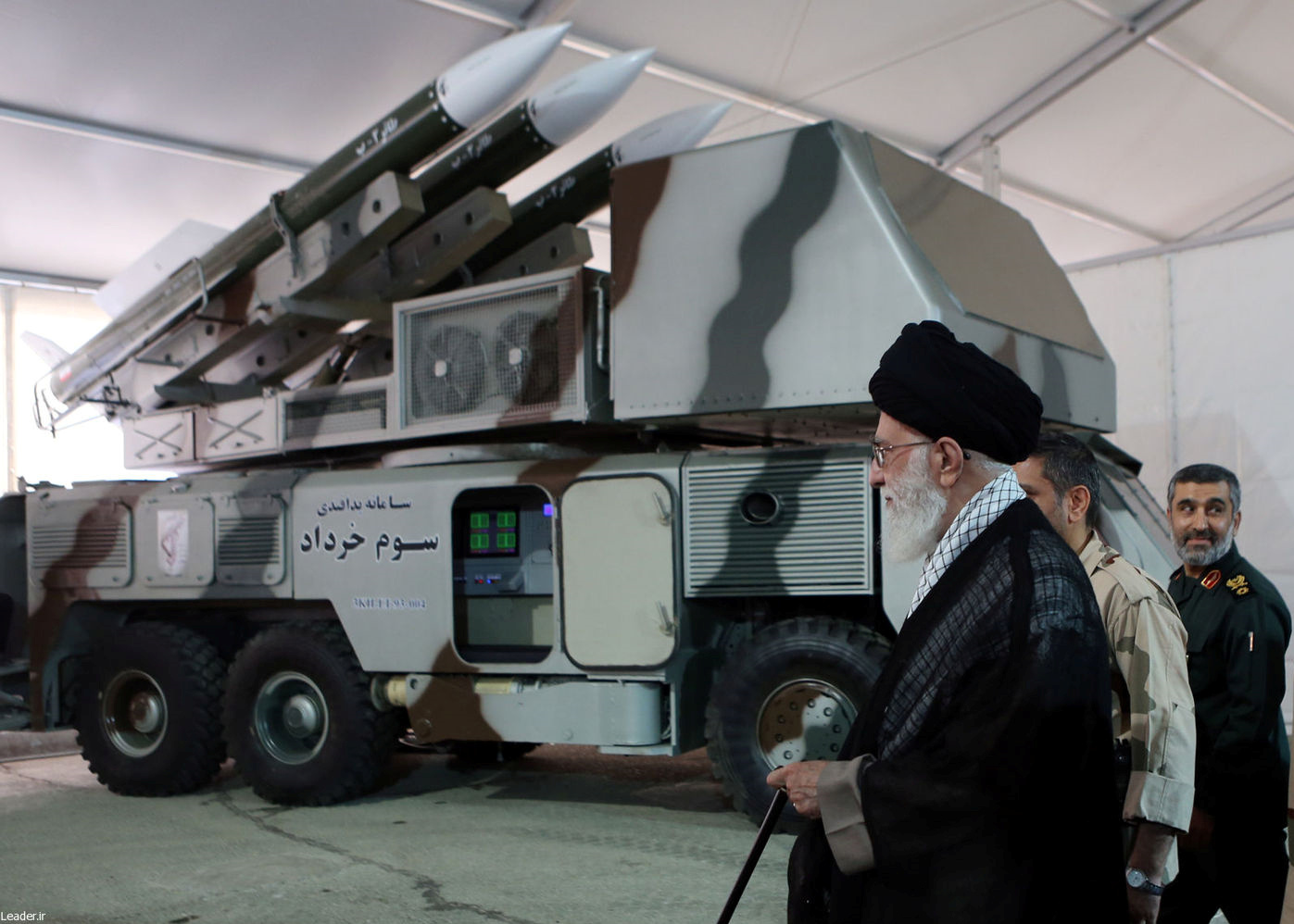Publications
INSS Insight No. 1289, April 1, 2020

The corona crisis, which has fueled a high degree of global uncertainty and increased the chances of distorted perceptions, will likely also have an impact on Israel’s strategic environment. While the outbreak of the virus reduces the chances of military escalation anytime soon, a brainstorming session held at the Institute for National Security Studies (INSS) highlighted ten negative scenarios that could occur during the crisis. The outbreak itself could increase the likelihood of: a collapse of regimes and governing systems, a wave of terror attacks in the West Bank, a new round of escalation in Gaza, increased activity by ISIS, a hasty American retreat from Iraq and Syria, Russian strategic opportunism in the region, and the weakening of the Persian Gulf monarchies. Scenarios that may or may not be more likely as a direct result of the pandemic include: the advancement of the Iranian nuclear program or reduced American pressure on Tehran, the advancement of Iran’s precision missile program in Syria and Lebanon, an escalation between Israel and Iran in Syria, and a widespread cyberattack, either global in scale or targeting Israel. Given the damage that would ensue from these scenarios, Israeli policymakers would do well to consider them and allocate intelligence resources accordingly.
The corona crisis has become a multidimensional shockwave reverberating beyond solely medical parameters, and is emerging as a watershed event in international relations in general and the history of the Middle East in particular. The unprecedented nature of this crisis makes it impossible to predict its duration, the extent of the havoc it will wreak on countries, groups, and individuals, and the ultimate impact of its regional and global effects. The high degree of resulting uncertainty poses a challenge for assessments regarding the future.
At present, countries are preoccupied with containing the spread of the virus and mitigating its effects. The inward focus of most regimes reduces the likelihood of a full-scale military confrontation between Israel and its adversaries in the near term. Still, a host of scenarios could play out in the coming weeks and months that Israel would do well to consider, even as it remains focused on the immediate demands stemming from corona at home. This article aims to assist decision makers and the public in thinking about the future, given an unstable strategic environment. It presents ten short term scenarios with negative implications for Israel, formulated during a brainstorming session among INSS researchers. (The article does not address potentially positive opportunities for Israel emerging from the crisis.) In some cases, the likelihood of the scenarios has increased as a result of the crisis; in others, the likelihood remains unchanged by the virus’s outbreak, but the considerable damage that such scenarios would unleash warrants consideration.
The spread of the coronavirus in the region may accelerate existing trends and create new challenges, put immense pressure on a large number of countries and organizations simultaneously, and increase the risk of distorted perceptions and miscalculations regarding the situation, especially given the profusion of fake news and conspiracy theories. In certain cases, such distorted perceptions could prompt a more sober risk assessment on the part of leaders in the region. Either way, the result would be a change in the familiar strategic considerations of regional actors.
Various actors could thus take actions (including those they have avoided until now), either out of a need to divert attention from domestic social and economic problems and pressures intensified by the pandemic, or in an attempt to take advantage of a newfound opportunity. The latter would be based on the assessment that the crisis has changed the balance of power in the region, altered the considerations of the superpowers in relation to regional affairs, and lowered the cost of such opportunism.
Scenarios with increased likelihood include:
- The collapse of regimes. Jordan, Lebanon, the Palestinian Authority, and even Egypt may have difficulty containing the crisis. While their citizens’ expectations of the government are limited, a medical catastrophe or shortage of basic necessities could conceivably ignite protests (particularly if publics perceive inadequacies in their leaders’ handling of the situation relative to other states) or lead to chaos and the collapse of systems. The dissolution of regimes friendly to Israel may turn their territory into a source of threat. In the near term, particularly if Israel is considered a relatively safe place, waves of refugees could attempt to advance toward it.
- Security escalation vis-à-vis the Gaza Strip. The security situation could escalate if Hamas assesses that Israel is more restrained in its military response, and may more easily acquiesce to demands to ease civilian conditions. Alternatively, Hamas’s ability to govern may deteriorate, and groups such as Palestinian Islamic Jihad could gain more leeway. The more Israel assists Hamas in dealing with the pandemic and easing the distress in the Gaza Strip, the less likely such an escalation becomes.
- A wave of terrorism in the West Bank. A kidnapping or a wave of terror attacks by individuals or organizations could occur due to an increase in personal distress or the assessment that risks have declined and the chances of leveraging terrorist activity into other achievements have increased. This scenario could materialize if the Palestinian Authority and Israel show lower enforcement and terror-thwarting capabilities, or if civilian distress among the Palestinians increases. Excessive morbidity among Palestinian prisoners who contract the virus while in Israeli jails could increase the motivation for kidnapping attacks.
- The rehabilitation of ISIS, reflected in an increase in attacks and/or an ISIS takeover of territory in the region, including in Sinai. The prolonged lack of political stability in Iraq and the focus of regimes on dealing with the pandemic may weaken governance in some areas, leading to less military pressure on ISIS. The decreasing bandwidth of global intelligence organizations may make it difficult to identify intended attacks in the West. Having lost its core territory, ISIS no longer shoulders the burden of governance and therefore is not obliged to contain the spread of the virus. Consequently, it may view the crisis as an opportunity to rehabilitate its position and capabilities, renew attacks in the region and throughout the world, and try to take over areas in the region, including in the Sinai Peninsula.
- A hasty American withdrawal from Syria and Iraq. This might occur in view of the spread of the virus throughout these territories, or due to a serious decline in President Donald Trump’s popularity stemming from his administration’s handling of the crisis. This development could lead him to advance processes he thinks would increase his chances of reelection in November. Thus, the more Baghdad’s control of the country weakens, the more the pressure on American forces by pro-Iranian militias will increase. An American withdrawal from Iraq would likely lead to a withdrawal from Syria as well, the dissolution of the international coalition against ISIS, and a takeover by the Assad regime of eastern Syria.
- Russian opportunism at the expense of the United States. Moscow may try to push pro-American Sunni countries to weaken their commitment to the United States by purchasing Russian weapons or nuclear power reactors, or by investing in the Russian economy, in exchange for the rehabilitation of the OPEC+ cartel. Thus, Russia may provide countries in the region with military capabilities that would change the strategic balance—such as S400 systems to Iran or Iraq—and encourage the Assad regime to reach agreements with the Kurds and thereby undermine the American presence in eastern Syria. Weakening America’s standing and strengthening that of Syria may have a negative impact on Israel’s freedom of action, leaving it alone to deal with Iran’s nefarious regional activity, and with less American backing in cases of conflict with Moscow.
- The weakening of the Gulf monarchies. Low oil and natural gas prices and the spread of the virus could further weaken the Gulf monarchies’ financial strength and undermine their internal stability. Potential “palace revolts”—as in the event Saudi Crown Prince Mohammed bin Salman takes advantage of the emergency to accelerate his accession—may heighten existing tensions in the halls of power, as well as between the rulers and their subjects. This scenario may weaken the effectiveness of Israeli-Gulf partnerships against Iran even after the crisis subsides.
Alongside these scenarios are others whose likelihood may not necessarily have increased, but the high expected damage they could incur requires ongoing attention:
- A change in direction on the Iranian nuclear front. The advancement of Iranian capabilities, which would shorten the potential breakout time to a bomb, and/or a softening of the American “maximum pressure” policy, may lead the Iranian regime to assess that an accumulation of nuclear assets would now come at lower strategic costs, and would improve its bargaining power vis-à-vis the United States. Alternatively, the Trump administration may move to open negotiations with Iran or freeze the current situation in exchange for increased humanitarian assistance, based on the assessment that it cannot score any achievements against Iran before the US presidential elections in November. A weakening of the sanctions regime would make it difficult to renew pressure on Tehran following the pandemic.

- Advancement of the precision arms project on the northern front, or increased escalation between Israel and Iran in Syria. Hezbollah and Iran may come to the conclusion that the heightened strain on Israel’s security establishment and the dilution of manpower (as is the case throughout the public sector) provide an opportunity to advance protected production lines in Syria and Lebanon for an inventory of precision missiles. Alternatively, Iran may succeed in positioning firepower in Syria and/or Iraq, and in firing toward Israel. In this way, Iran may try to illustrate to Israel the price of the campaign between wars, similar to the escalation of pro-Iranian militia activity against American forces in Iraq.
- A widespread cyberattack, global or focused on Israel. Such an attack may lead to excessive damage, because during this period of social distancing and lockdowns, the global economy’s dependence on communications infrastructure for purposes of working remotely has increased to an unprecedented extent. The governing capacity of countries also relies more than ever on technological systems. At the same time, the communications industry is facing increased traffic needs and must adjust rapidly to market changes and manpower limitations, such that breaches in security mechanisms could occur.
Alongside these scenarios, new strategic contexts in the region could result from other developments, including the death of major leaders, potential changes in the power dynamics at the international level, a military victory in the civil war in Libya, a ceasefire in Yemen, or a resolution of the conflict between Qatar and its neighbors in the Gulf.
Recommendations for Israel
Israel is naturally focused primarily on the medical and economic responses to the coronavirus crisis, and for the time being the chances of any serious security incident appear limited, given countries’ attention on the domestic repercussions of the virus. Even in Israel, the security apparatus has reduced its routine activity and diverted some of its resources to investigate the spread of the virus, obtain medical equipment, and maintain public order.
Despite the urgency of dealing with the direct ramifications of the pandemic, decision makers in Israel must consider the possibility that challenging scenarios with the ability to cause a high degree of damage could emerge, particularly those mentioned above. The security establishment should, therefore, be thinking through such scenarios and consider a possible reallocation of resources in the future.
In at least some areas, the early identification of negative developments may give Israel an opportunity to intervene in order to prevent damage to its interests. In others, preemptive strategic communication could dissuade leaders in the region from taking steps that would lead to an immediate escalation or make relations more difficult in the future.


